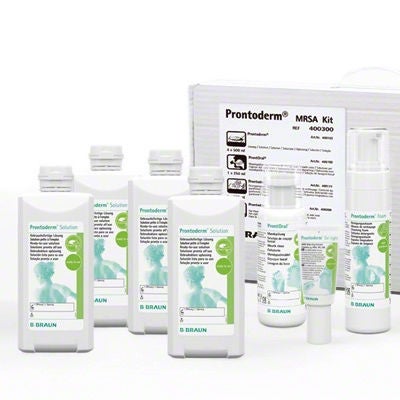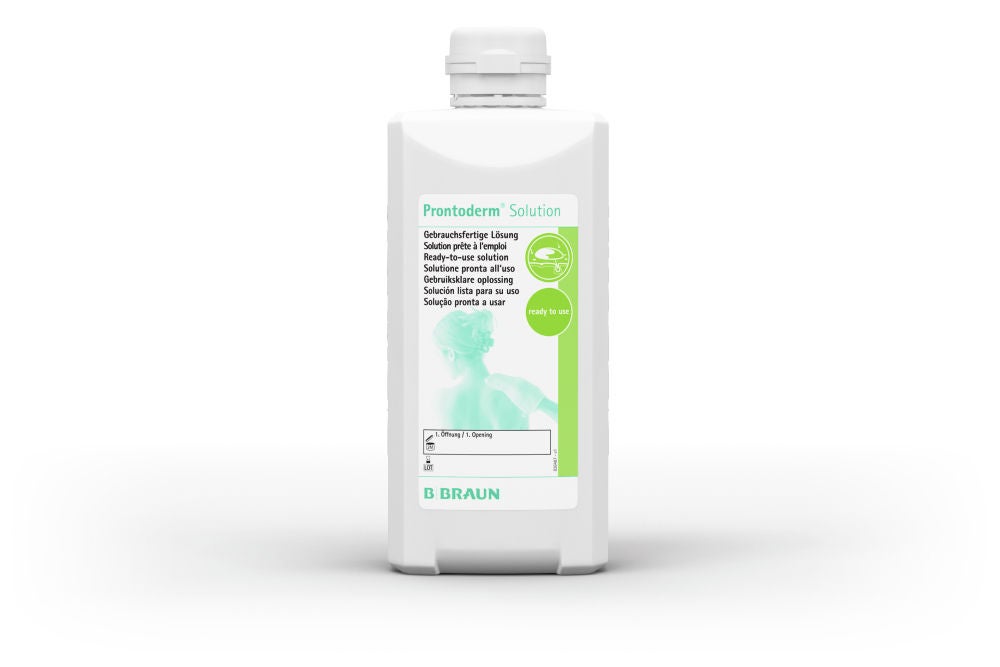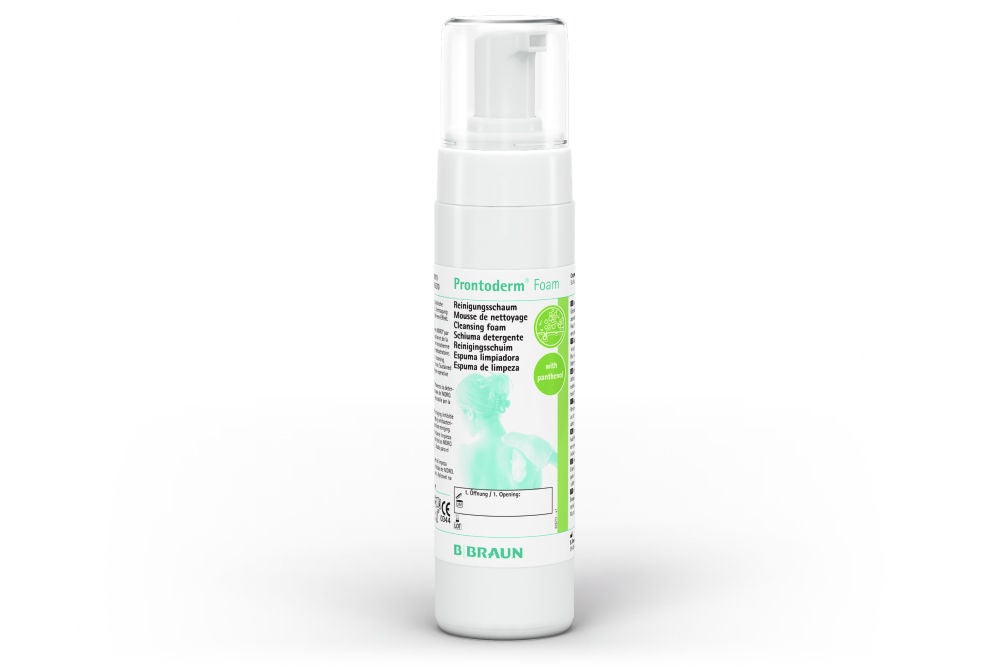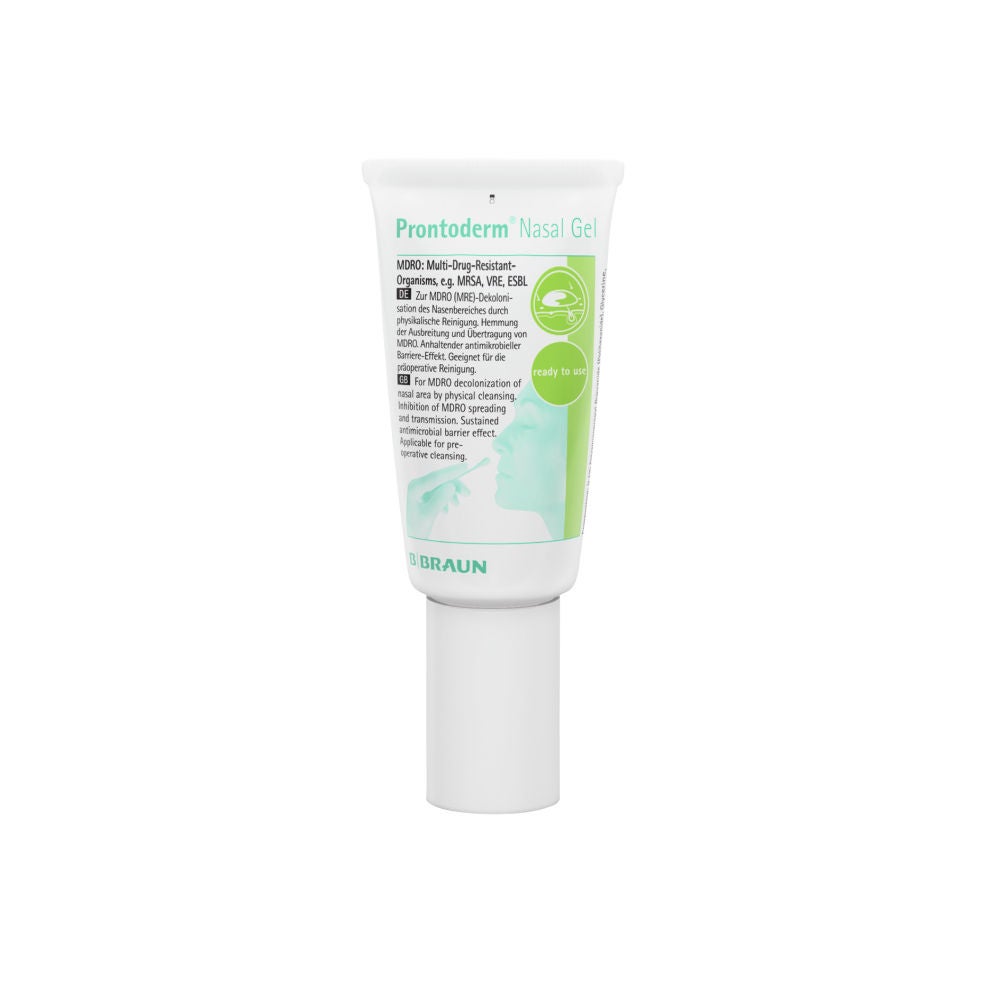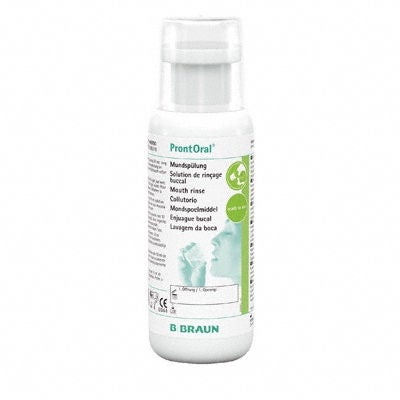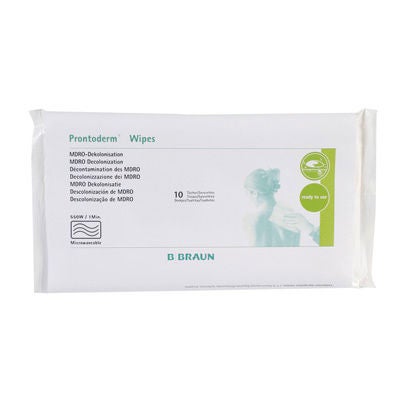Sie haben sich erfolgreich abgemeldet.
Noch nicht registriert?
Universelle Dekolonisation vor operativen Eingriffen und auf Intensivstationen
Gegen MRSA* und andere Mikroorganismen
Zahlreiche Studien bestätigen, dass Infektionen durch multiresistente Erreger (MRE) mit einer hohen Sterberate in Verbindung stehen,[1,2,3] zu einer zwei- bis dreimal längeren Verweildauer im Krankenhaus führen[4] und folglich höhere direkt zurechenbare Kosten für Diagnostik und Therapie mit sich bringen können[5].

Neben multiresistenten Bakterien, wie z.B. MRSA (Methicillin-resistenter Staphylococcus aureus) gehören aber auch antibiotikasensible Keime zur Hautflora. Auch diese Keime können ein ernsthaftes Infektionsrisiko für Patienten darstellen[6,7].
Könnte die präventive Ganzkörperdekolonisation mit einer antibakteriellen Körperwaschung angesichts der ernsten Risiken eine wirksame Maßnahme im Kampf gegen Infektionen und die weitere Verbreitung antibiotikaresistenter Erreger sein?
Universelle Dekolonisation
Antibakterielle Ganzkörperwaschung vor der Operation

Wir empfehlen, vor elektiven Operationen oder geplanten Klinikaufenthalten eine universelle Dekolonisation durchzuführen. Dadurch soll die Keimlast, einschließlich der von multiresistenten Erregern (MRE), reduziert werden[8].
Dieser universelle Ansatz könnte im Gegensatz zur gezielten Dekolonisation dazu beitragen, die Isolierung von Patienten oder die Verschiebung von Operationen zu vermeiden[9]. Beides ist mit erheblichem Aufwand und Einsatz von zusätzlichen Ressourcen verbunden[4,5].
Im Laufe der Zeit gab es unterschiedliche Ansätze: Anfangs lag der Fokus auf einer gezielten Dekolonisation und Sanierung von Patienten mit nachgewiesener MRSA-Kolonisation nach risikobasiertem Screening.
Später erfolgte ein routinemäßiges MRSA-Screening aller Patienten vor einem elektiven Eingriff. Später hat sich die universelle Dekolonisation zur Primärprävention immer mehr durchgesetzt[10].
Beabsichtigte Vorteile der universellen Dekolonisation:
- Universelle Dekolonisation kann von Patienten zu Hause durchgeführt werden
- Höhere Akzeptanz bei Patienten und Angehörigen
- Höhere Wirksamkeit als Screening-basierte oder gezielte Dekolonisierung
- Reduzierung von nosokomialen Infektionen, insbesondere Staphylococcus aureus-bedingter Infektionen sowie postoperativer Wundinfektionen anderer Ursache
- Reduzierung von postoperativen Wundinfektionen im Rahmen einer Gesamtstrategie
- Reduzierung des Antibiotikaeinsatzes
- Kostenersparnis im Vergleich zur gezielten Dekolonisation
Prähabilitation
Involvieren Sie Ihre Patienten zu ihrer eigenen Sicherheit
Universelle Dekolonisation kann eine wirksame Maßnahme als Bestandteil einer Gesamtstrategie gegen postoperative Wundinfektionen (SSI) und generell gegen nosokomiale Infektionen sein[11]. Gleichzeitig soll sie im Vergleich zur gezielten Dekolonisation, die häufig in Krankenhäusern praktiziert wird, Kosten vermeiden[12].
Die Ganzkörperdekolonisation kann von den Patienten selbst als Präventivmaßnahme vor einer elektiven Operation durchgeführt werden.

Den Behandelnden kommt hierbei die verantwortungsvolle Rolle zu, Patienten auf ihren Krankenhausaufenthalt vorzubereiten. Mit der Empfehlung einer universellen Dekolonisierung vor Krankenhausaufenthalt kann der Patient aktiv zu einer möglichen Reduzierung seines Infektionsrisikos beitragen.
Eine antibakterielle Ganzkörperwaschung mit Prontoderm®, einem Leave-on-Produkt, das für die Anwendung zu Hause geeignet ist und als Lösung, Schaum, Tücher, Nasengel und Mundspüllösung zur Verfügung steht.
Ganzkörperdekolonisation im Krankenhaus
Antibakterielle Waschung bei stationär behandelten Patienten
Untersuchungen zeigen, dass bis zu 30 % der Patienten auf der Intensivstation eine nosokomiale Infektion bekommen können[13].
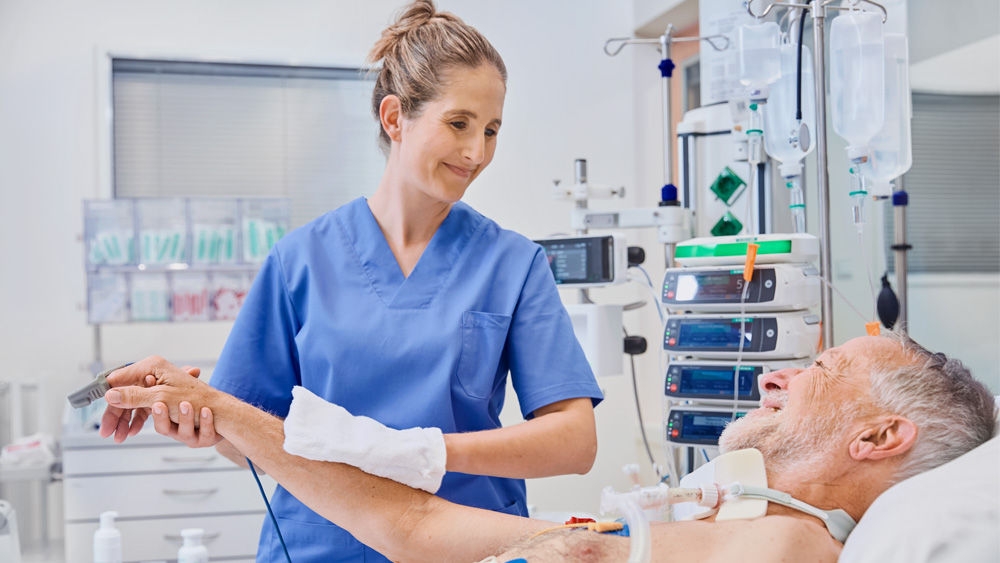
B. Braun, der zuverlässige Partner an Ihrer Seite. Mit Prontoderm® bieten wir Ihnen ein Produktkonzept, das helfen kann, das Infektionsrisiko zu reduzieren. Prontoderm®-Produkte haben einen nachhaltigen antimikrobiellen Barriere-Effekt und verhindern die Ausbreitung und Übertragung von Mikroorganismen wie multi-resistente Erreger (MRE). Mit dem Einsatz von Polihexanid als hautverträgliche Lösung, die nicht abgewaschen werden muss und nicht zu Resistenzen führt, setzen wir Maßstäbe[14].
Unsere Lösung
Prontoderm®, ein ganzheitliches Konzept zur Ganzkörperdekolonisation
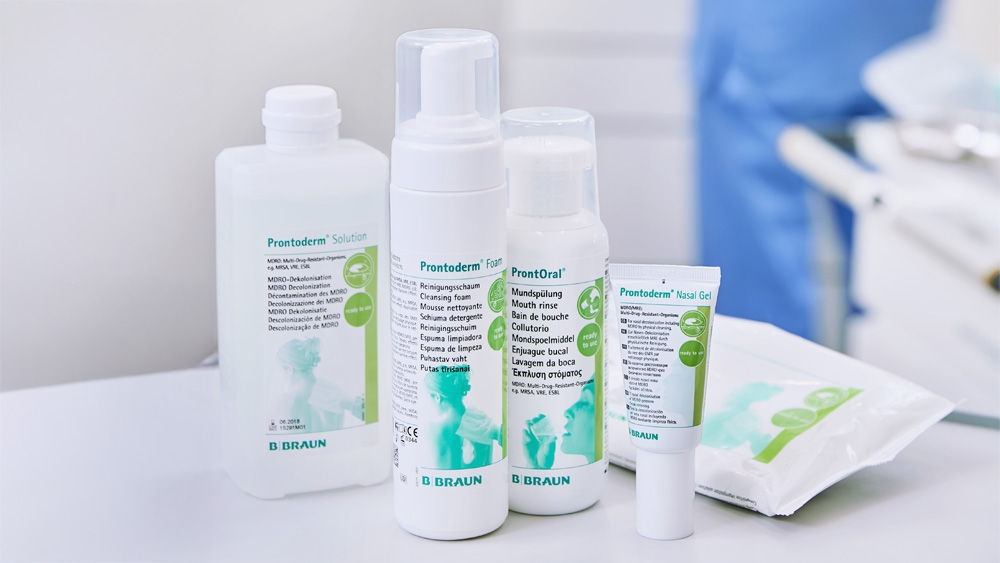
Prontoderm® kann sowohl in Gesundheitseinrichtungen als auch zu Hause angewandt werden. Prontoderm® enthält eine synergetische Mischung aus Tensiden und Polyhexamethylenbiguanid (PHMB) in Wasser.
Vorteile von Polihexanid
Polihexanid
- zeigt antimikrobielle Wirksamkeit gegen ein breites Spektrum an Keimen mit sehr guter Verträglichkeit und geringem Risikoprofil,[15]
- hat eine hohe antimikrobielle Wirkung gegen Staphylococcus aureus,[14]
- weist eine hohe Gewebeverträglichkeit und Biokompatibilität[16] auf.
- ist seit etwa 40 Jahren für den medizinischen Gebrauch zugelassen.
In einer Studie konnte gezeigt werden, dass Polihexanid im Vergleich zu vier anderen antimikrobiellen Substanzen das beste Verhältnis von einerseits Bioaktivität (antimikrobielle Aktivität) und andererseits Biokompatibilität (Hautgewebetoleranz) aufweist [14]. So wirkte Polihexanid leistungsstark gegen Keime wie Staphylococcus aureus und schützte gleichzeitig die Haut vor Schädigungen[14].
Darüber hinaus konnte gezeigt werden, dass eine universelle präoperative Dekolonisation mit Polihexanid die Staphylococcus aureus postoperativen Wundinfektionen nach elektiven Gelenkarthroplastiken wirksam reduziert[17].
Vorteile von Prontoderm®
Prontoderm®
- ist wirksam gegen Bakterien, zum Beispiel: Staphylococcus aureus, Enterococcus hirae, Pseudomonas aeruginosa, Acinetobacter baumannii und multiresistente Erreger wie MRSA, VRE und ESBL (Gram-negative Bakterien, die erweiterte Spektrums-Beta-Lactamasen produzieren)[18].
- besitzt einen anhaltenden antimikrobiellen Barriere-Effekt, der eine Rekolonisierung verhindert[19].
- ist ein Leave-on-Produkt: Es muss nicht abgewaschen werden.
- weist keine dokumentierte Resistenz bei Bakterien auf[20] (wie sie bei Antibiotika auftreten kann).
- hat eine sehr gute Hautverträglichkeit und ist dermatologisch getestet[21].
- kann in einen gesamtheitlichen Ansatz zur Reduktion von SSI und Katheter-assoziierten Harnwegsinfektionen (CAUTI) integriert werden[22].
- ist als Lösung, Schaum, getränkte Tücher, Nasengel und Mundspüllösung (ProntOral®) erhältlich.
Referenzen
*Methicillin-resistenter Staphylococcus aureus
- Samreen, Ahmad I, Malak HA, Abulreesh HH. Antimikrobielle Umweltresistenz und ihre Treiber: eine potenzielle Gefahr für die öffentliche Gesundheit. J Glob Antimicrob Resist. 2021 Dez;27:101-111. doi: 10,1016/j.jgar.2021.08.001. Epub 2021 25. August. PMID: 34454098.
- Pires D, de Kraker MEA, Tartari E, Abbas M, Pittet D. ‘Fight antibiotic resistance—it’s in your hands’: call from the World Health Organization for 5th May 2017. Clin Infect Dis 2017;64:1780–3. doi: 10.1093/cid/cix226.
- de Kraker ME, Davey PG, Grundmann H; BURDEN study group. Mortality and hospital stay associated with resistant Staphylococcus aureus and Escherichia coli bacteremia: estimating the burden of antibiotic resistance in Europe. PLoS Med. 2011 Oct;8(10):e1001104. doi: 10.1371/journal.pmed.1001104. Epub 2011 Oct 11. PMID: 22022233; PMCID: PMC3191157.
- Graves N, Weinhold D, Tong E, Birrell F, Doidge S, Ramritu P, Halton K, Lairson D, Whitby M. Effect of healthcare-acquired infection on length of hospital stay and cost. Infect Control Hosp Epidemiol. 2007 Mar;28(3):280-92. doi: 10.1086/512642. Epub 2007 Feb 20. PMID: 17326018.
- Everett BR, Sitton JT, Wilson M. Efficacy and Cost-Benefit Analysis of a Global Environmental Cleaning Algorithm on Hospital-Acquired Infection Rates. J Patient Saf. 2017 Dec;13(4):207-210. doi: 10.1097/PTS.0000000000000141. PMID: 25162207.
- Graveto JMGDN, Rebola RIF, Fernandes EA, Costa PJDS. Hand hygiene: nurses' adherence after training. Rev Bras Enferm. 2018 May;71(3):1189-1193. Portuguese, English. doi: 10.1590/0034-7167-2017-0239. PMID: 29924172.
- Stewart S, Robertson C, Pan J, Kennedy S, Dancer S, Haahr L, Manoukian S, Mason H, Kavanagh K, Cook B, Reilly J. Epidemiology of healthcare-associated infection reported from a hospital-wide incidence study: considerations for infection prevention and control planning. J Hosp Infect. 2021 Aug;114:10-22. doi: 10.1016/j.jhin.2021.03.031. PMID: 34301392.
- Huang SS, Singh R, McKinnell JA, Park S, Gombosev A, Eells SJ, Gillen DL, Kim D, Rashid S, Macias-Gil R, Bolaris MA, Tjoa T, Cao C, Hong SS, Lequieu J, Cui E, Chang J, He J, Evans K, Peterson E, Simpson G, Robinson P, Choi C, Bailey CC Jr, Leo JD, Amin A, Goldmann D, Jernigan JA, Platt R, Septimus E, Weinstein RA, Hayden MK, Miller LG; Project CLEAR Trial. Decolonization to Reduce Postdischarge Infection Risk among MRSA Carriers. N Engl J Med. 2019 Feb 14;380(7):638-650. doi: 10.1056/NEJMoa1716771. PMID: 30763195; PMCID: PMC6475519.
- Kavanagh KT, Calderon LE, Saman DM, Abusalem SK. The use of surveillance and preventative measures for methicillin-resistant staphylococcus aureus infections in surgical patients. Antimicrob Resist Infect Control. 2014 May 14;3:18. doi: 10.1186/2047-2994-3-18. PMID: 24847437; PMCID: PMC4028005.
- Miller LG, McKinnell JA, Singh RD, Gussin GM, Kleinman K, Saavedra R, Mendez J, Catuna TD, Felix J, Chang J, Heim L, Franco R, Tjoa T, Stone ND, Steinberg K, Beecham N, Montgomery J, Walters D, Park S, Tam S, Gohil SK, Robinson PA, Estevez M, Lewis B, Shimabukuro JA, Tchakalian G, Miner A, Torres C, Evans KD, Bittencourt CE, He J, Lee E, Nedelcu C, Lu J, Agrawal S, Sturdevant SG, Peterson E, Huang SS. Decolonization in Nursing Homes to Prevent Infection and Hospitalization. N Engl J Med. 2023 Nov 9;389(19):1766-1777. doi: 10.1056/NEJMoa2215254. Epub 2023 Oct 10. PMID: 37815935.
- Prävention postoperativer Wundinfektionen Empfehlung der Kommission für Krankenhaushygiene und Infektionsprävention (KRINKO) beim Robert Koch-Institut. Bundesgesundheitsblatt Gesundheitsforschung Gesundheitsschutz. 2018 Apr;61(4):448-473. German. doi: 10.1007/s00103-018-2706-2. PMID:29589090
- Huang SS, Septimus E, Avery TR, Lee GM, Hickok J, Weinstein RA, Moody J, Hayden MK, Perlin JB, Platt R, Ray GT. Cost savings of universal decolonization to prevent intensive care unit infection: implications of the REDUCE MRSA trial. Infect Control Hosp Epidemiol. 2014 Oct;35 Suppl 3:S23-31. doi: 10.1086/677819. PMID:25222894.
- WHO. Global report on infection prevention and control. Geneva: World Health Organization; 2022.
- Reddersen K, Wiegand C, Elsner P, Hipler UC. Three-dimensional human skin model infected with Staphylococcus aureus as a tool for evaluation of bioactivity and biocompatibility of antiseptics. Int J Antimicrob Agents. 2019 Sep;54(3):283-291. doi: 10.1016/j.ijantimicag.2019.06.022. Epub 2019 Jul 3. PMID: 31279155.
- Kaehn K. Polihexanide: a safe and highly effective biocide. Skin Pharmacol Physiol. 2010;23 Suppl:7-16. doi:10.1159/000318237
- Müller G, Kramer A. Biocompatibility index of antiseptic agents by parallel assessment of antimicrobial activity and cellular cytotoxicity. J Antimicrob Chemother. 2008 Jun;61(6):1281-7. doi: 10.1093/jac/dkn125. Epub 2008 Mar 25. PMID: 18364400.
- Wandhoff B, Schröder C, Nöth U, Krause R, Schmidt B, David S, Scheller EE, Jahn F, Behnke M, Gastmeier P, Kramer TS. Efficacy of universal preoperative decolonization with Polyhexanide in primary joint arthroplasty on surgical site infections. A multicenter before-and after-study. Antimicrob Resist Infect Control. 2020 Nov 30;9(1):188. doi: 10.1186/s13756-020-00852-0. PMID: 33256845; PMCID: PMC7708093."
- Unveröffentlichte Daten #1
- Unveröffentlichte Daten #2
- Hirsch T, Koerber A, Jacobsen F, Dissemond J, Steinau HU, Gatermann S, Al-Benna S, Kesting M, Seipp HM, Steinstraesser L. Evaluation of toxic side effects of clinically used skin antiseptics in vitro. J Surg Res. 2010 Dec;164(2):344-50. doi: 10.1016/j.jss.2009.04.029. Epub 2009 May 18. PMID: 19726054.
- Unveröffentlichte Daten #3 (Gutachten auf Anfrage)
- Castellà L, Casas I, Giménez M, Reina D, Sopena N, García-Quesada MJ; Clinical Working Group. Hygiene with wet wipes in bedridden patients to prevent catheter-associated urinary tract infection in cardiac surgery: A randomized controlled trial. Infect Control Hosp Epidemiol. 2023 Aug 24:1-4. doi: 10.1017/ice.2023.178. Epub ahead of print. PMID: 37615098.
Bleiben Sie in Verbindung mit My B. Braun
Mit Ihrem personalisierten Konto wird Ihr Online-Erlebnis einfacher, bequemer und sicherer.
